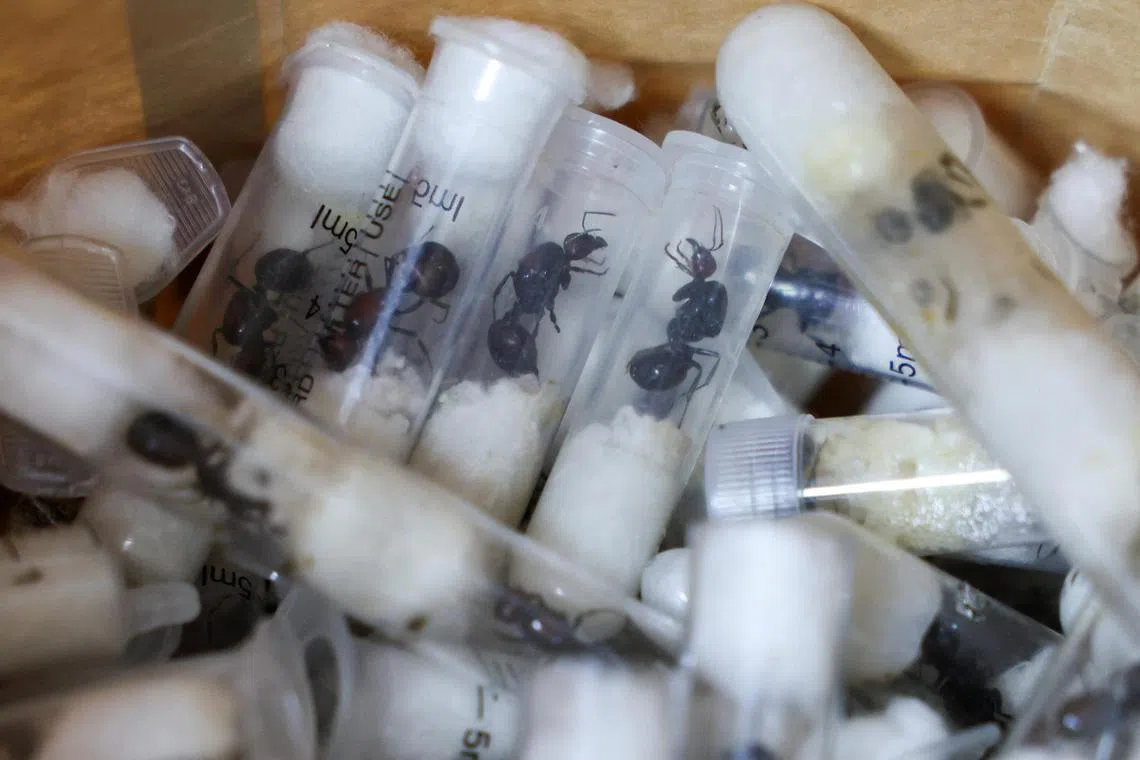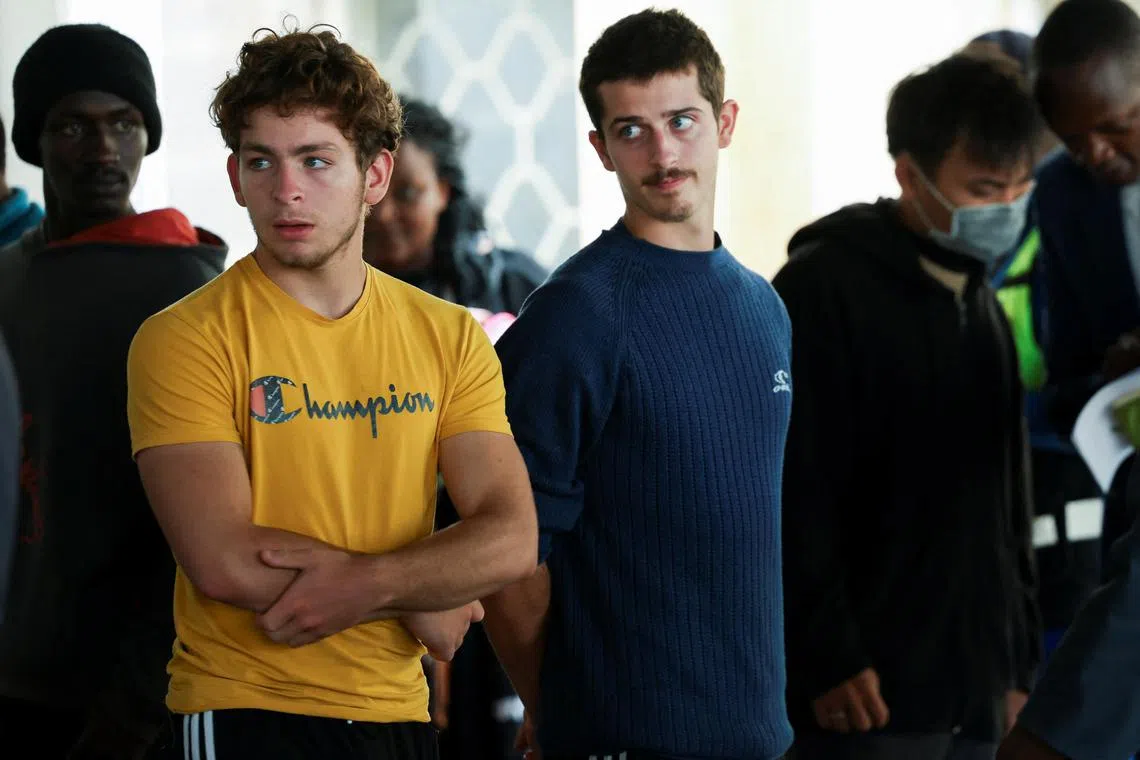Kenya’s ant smuggling bust exposes lucrative underground trade
Sign up now: Get ST's newsletters delivered to your inbox

Kenyan prosecutors have valued the seizures of queens taken from giant African harvester ant colonies at about 1.2 million Kenyan shillings (S$12,121).
PHOTO: REUTERS
NAIROBI – Kenyan police who raided a national park guesthouse earlier in April aimed not to bust elephant tusk or rhino horn poachers, but a more esoteric ring trading a much smaller, more lucrative item by weight: queen ants.
Two Belgian teenagers – David Lornoy and Seppe Lodewijckx – were arrested for wildlife trafficking at Jane Guesthouse in Naivasha, on the edge of Kenya’s Hell’s Gate National Park.
They – along with a Vietnamese man named Duh Hung Nguyen and a Kenyan national named Dennis Nganga who were also accused of ant trafficking – pleaded guilty and will be sentenced on May 7, a magistrate said on April 23.
Kenyan prosecutors have valued the seizures of queens taken from giant African harvester ant colonies at about 1.2 million Kenyan shillings (S$12,121).
Depending on the number and variety of each species found, however, Reuters calculated the haul would have been worth as much as US$1 million had it reached European shores.
“It’s like cocaine,” said Dr Dino Martins, director of the Turkana Basin Institute and one of Kenya’s leading insect experts.
“The price of cocaine in Colombia versus getting a kilogram in the European market is such a big value addition, that’s why people do it.”
Based on the average cost of giant African harvester ants at six retailers in Britain, each of the roughly 5,440 queens seized at Nairobi airport according to court documents is worth around £175 (S$305).
Ant aficionados pay large sums to maintain ant colonies in big transparent vessels known as formicariums, which provide insights into the insects’ intricate social structures and behaviours.
But queen ants are vital for any colony as they are the only ones capable of laying eggs that grow into worker, soldier and future queen ants, meaning that trafficking can jeopardise colonies critical to Kenya’s wildlife ecosystem.

Belgian nationals David Lornoy (in yellow) and Seppe Lodewijckx (in blue) appearing in a Kenyan court in Nairobi on April 23. With them is Vietnamese Duh Hung Nguyen (wearing mask), who was also accused of ant trafficking.
PHOTO: REUTERS
Mass death in transit
Dr Martins said the retail value of the bug bust should be tempered by the expectation that as many as 90 per cent of them would likely have died in transit to Europe and Asia from disease, bacteria and freezing temperatures.
Nonetheless, the record seizures have raised questions about whether the attempted heist was a one-off by amateur enthusiasts, or a wider network of wildlife traffickers exploring new products and markets.
Ant exports are permitted from Kenya with licences, though the regulations are difficult to navigate, Dr Martins said.
“We are not criminals, we are 18 years old, we are naive, and I just want to go home to start my life,” one of the Belgian defendants, Lornoy, said at the trial last week.
The Kenya Wildlife Service, however, said the case signals a landmark shift in biopiracy trends from iconic large mammals to lesser-known species that are no less ecologically critical.
“This case represents far more than insect smuggling,” said Dr Erustus Kanga, director-general of Kenya Wildlife Service.
“We’re seeing organised crime syndicates diversify from traditional ivory poaching to target our entire biodiversity – from medicinal plants to insects to microorganisms.”
Mr Samuel Mutua, a wildlife crime expert at the International Fund for Animal Welfare, said the ant case qualifies as organised crime. “Irrespective of their age, (the defendants) were able to get a lot of ants,” he said.
For Dr Martins, the furore over the case overlooks the greater threat to insects in East Africa posed by pesticides and habitat destruction that kill millions of ants every day.
Harvester ants, whose industriousness is mentioned by King Solomon in the Bible, keep Kenya’s iconic Rift Valley healthy by spreading and mixing grass seeds across the landscape, Dr Martins added.
“If we were to lose all the elephants in Africa, we would be devastated, but the grassland would continue. If we were to lose all the harvester ants and termites, the savannah would collapse.” REUTERS, AFP


